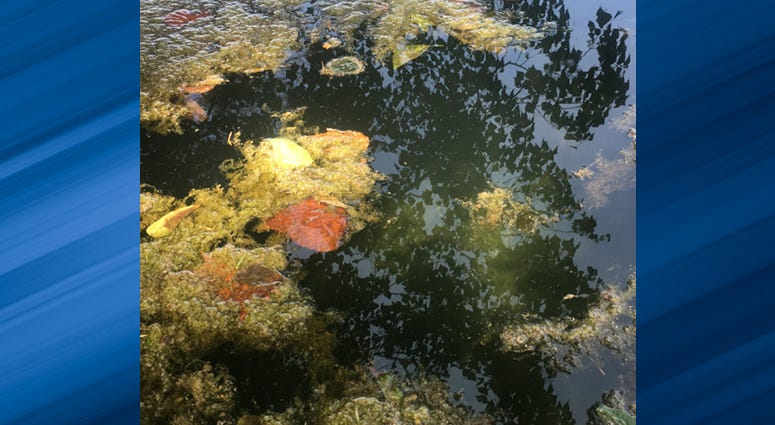
AUSTIN (Talk1370.com) -- The Lower Colorado River Authority is again warning pet owners to keep their dogs away from algae blooms across the Highland Lakes.
LCRA says it received test results Wednesday morning from blue-green algae samples taken from Lakes Buchanan, Inks, LBJ, Marble Falls, and Travis on March 16 & 17.
Samples from three of the lakes - Inks, Marble Falls, and Travis - came back positive for cyanotoxins, which are emitted by blue-green algae and can be fatal to dogs.
“The key here is not to let your guard down,’’ said John Hofmann, LCRA executive vice president of Water. “We encourage people in the strongest terms possible not to let dogs play near algae in the lakes. Our tests show what was present at the specific site we tested on the day we took the samples, but conditions can change."
Earlier tests in March detected cyanotoxins at 10 sites at the lower end of Lake Travis, and in the water at three of those sites.
Low concentrations of cyanotoxin were detected in algae taken from the shoreline near the Inks Lake State Park boat ramp in Inks Lake and at the Cottonwood Shores boat ramp in Lake Marble Falls. The amount detected was significantly lower than what was detected downstream at Hudson Bend in Lake Travis. The tests did not detect cyanotoxins in the water at Inks Lake or Lake Marble Falls.
Tests also detected cyanotoxins in algae and water at Travis Landing, an area near Hudson Bend on Lake Travis where cyanotoxins (dihydroanatoxin-a and anatoxin-a) have been detected in two previous tests. The March 16-17 tests detected cyanotoxins in the area at lower levels than detected in previous tests.
“Blue green algae are common in Texas lakes, and it is not easy to predict if or when algae will start producing toxins,” Hofmann said. “Out of an abundance of caution – whether our tests detected toxic algae in the area or not – we encourage people to avoid contact with algae in the lakes, and to especially make sure dogs don’t play in or eat it.”
More information is available on LCRA's website.
